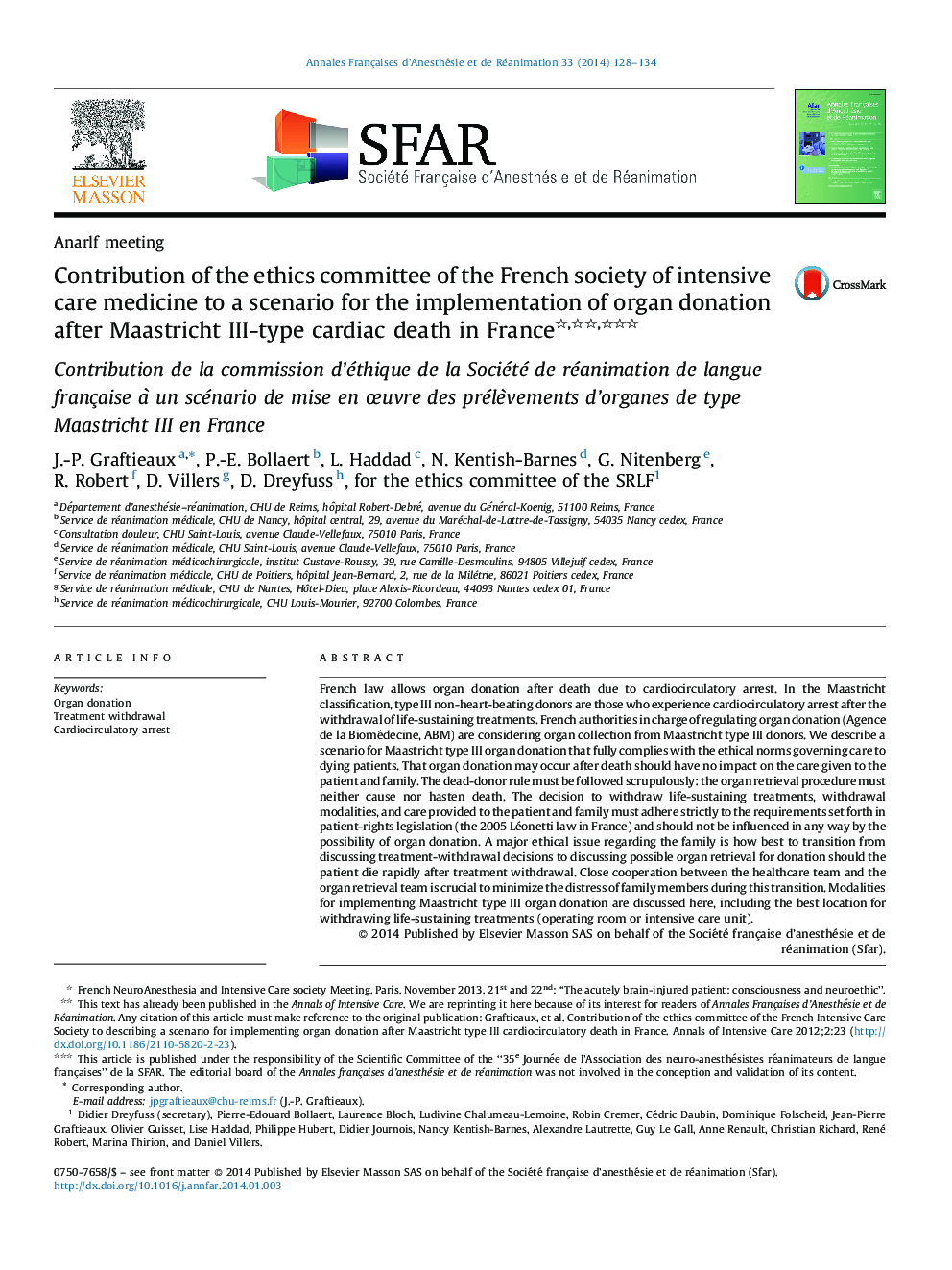| کد مقاله | کد نشریه | سال انتشار | مقاله انگلیسی | نسخه تمام متن |
|---|---|---|---|---|
| 2745240 | 1148830 | 2014 | 7 صفحه PDF | دانلود رایگان |

French law allows organ donation after death due to cardiocirculatory arrest. In the Maastricht classification, type III non-heart-beating donors are those who experience cardiocirculatory arrest after the withdrawal of life-sustaining treatments. French authorities in charge of regulating organ donation (Agence de la Biomédecine, ABM) are considering organ collection from Maastricht type III donors. We describe a scenario for Maastricht type III organ donation that fully complies with the ethical norms governing care to dying patients. That organ donation may occur after death should have no impact on the care given to the patient and family. The dead-donor rule must be followed scrupulously: the organ retrieval procedure must neither cause nor hasten death. The decision to withdraw life-sustaining treatments, withdrawal modalities, and care provided to the patient and family must adhere strictly to the requirements set forth in patient-rights legislation (the 2005 Léonetti law in France) and should not be influenced in any way by the possibility of organ donation. A major ethical issue regarding the family is how best to transition from discussing treatment-withdrawal decisions to discussing possible organ retrieval for donation should the patient die rapidly after treatment withdrawal. Close cooperation between the healthcare team and the organ retrieval team is crucial to minimize the distress of family members during this transition. Modalities for implementing Maastricht type III organ donation are discussed here, including the best location for withdrawing life-sustaining treatments (operating room or intensive care unit).
Journal: Annales Françaises d'Anesthésie et de Réanimation - Volume 33, Issue 2, February 2014, Pages 128–134